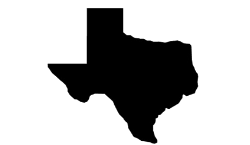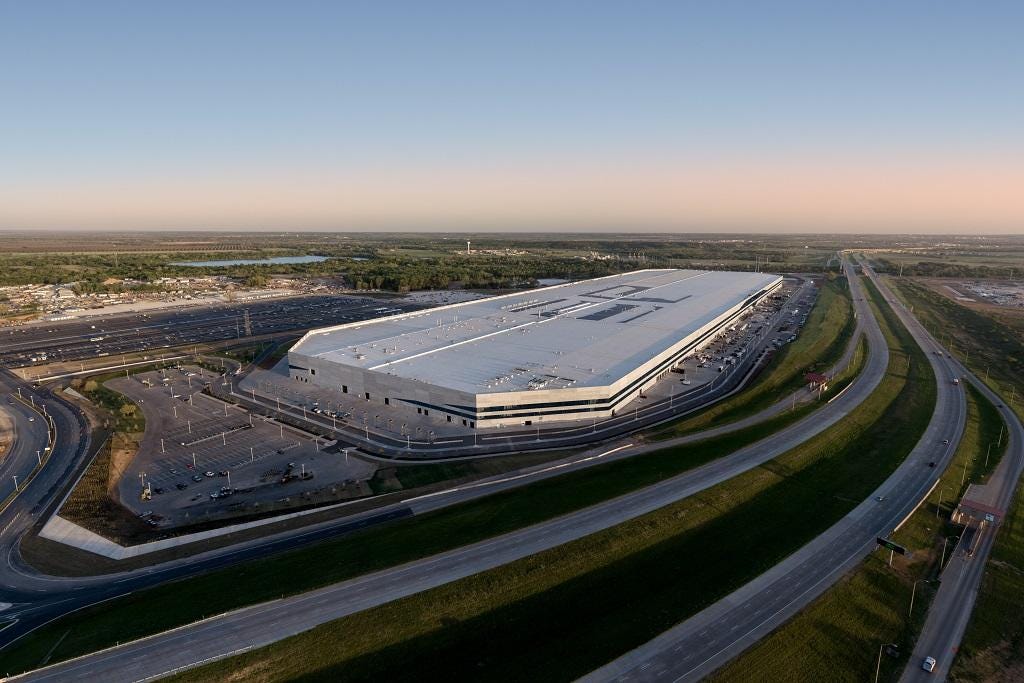All Hail the Mighty State
Lt. Gov. Dan Patrick’s latest fascist edict is to ban the media from the Senate floor. This adds another level of constraint to the dissemination of the truth to keep voters informed and able to make decisions that rid the legislature of people like Mr. Patrick.

“There are parts of Texas where a fly lives ten thousand years and a man can't die soon enough.” - Katherine Dunn

Long before I had reached twenty-two years of reporting on the Texas legislature and state government for two Houston television stations, I had decided it was time to take my leave. My frustration with the processes of making and killing law, and generally ignoring what might help the state, had started to seep down to the cellular level. Certain people became despicable to me, determined to do little more than serve business and profits, and to hell with anything that might give even a slight chance to the disadvantaged. This is not to suggest there aren’t always honorable officeholders trying to tackle important issues; they are, however, mostly voiceless in the Texas one party system, which has about as much political balance as the Kremlin. Their bills, if they get assigned to a committee, are sent there to die.
Yes, you can argue that is the process and it is incumbent upon the bill’s author to build a coalition of support to get their measure to the full floor for a vote. But this ignores the fact there is little chance of such a thing happening when the GOP has gerrymandered the state’s legislative districts to the point where minorities and progressives have almost no chance of gaining office. There is little to no hope of a Democrat creating a majority vote to pass a meaningful law, or even getting enough colleagues to agree to pass it out of a committee. When the improbable occurs and such a bill leaves the committee, it heads to the Calendars Committee in the house to await an assignment of a date for a full house vote. The house speaker can simply send a message to the chair of the committee, who he assigned, to not give the bill a date on the calendar.
The process in the Texas Senate is even more banal. In both chambers, though, there is rarely anything that looks like debate or public discourse. The cake is baked before it is brought into the room. Senators hoping to pass anything to help the people in their districts must prostrate themselves before the authoritarian Lt. Governor Dan Patrick and seek his permission, almost to file the bill. They know, however, before taking such a courageous step that he has already decided if it will come up for a vote. Even if it does, the debate is pro forma because Patrick has presumptively whipped the votes necessary to kill or pass. The beneficiaries of this mutant democracy call the senate’s deliberations collegial, but the more accurate term is insidious. There is no longer a damned thing about the Texas legislature that even remotely resembles democracy.
Patrick’s latest fascist edict is to ban the media from the senate floor. This adds another level of constraint to the dissemination of the truth to keep voters informed and able to make decisions that rid the legislature of people like Mr. Patrick. Their voting choices are delimited by redistricting rules that enable gerrymandering, regulations adding friction to the electoral process to reduce turnout, and keeping the Senate meeting at a distance makes it tougher for facts to get through the haze of partisan Republican bullshit spewed by Patrick and his Trumpublican colleagues. Our cameras were always behind the senate railing, and reporters and photographers maintained a level of decorum that never disrupted proceedings. We sat at a press table where senators frequently came over to explain votes and issues, and there was a free flow of information that served the public.
There is no longer a damned thing about the Texas legislature that even remotely resembles democracy.
Banning the media from the Senate floor will have a residual impact on news coverage, generally, which is probably intentional. Editors in the other major cities in Texas will be disinclined to send TV crews because they will argue there is not much to be learned from having a camera placed on the third floor in the gallery. A news crew that is not dispatched to Austin cannot do additional stories and follow up interviews on other issues and topics of interest to taxpayers and voters. What little discussion that might occur on the Senate floor can be picked up on the capitol’s video feed and recorded remotely, even though it is mostly useless dialogue since the outcome is known through Patrick’s control. No camera presence on the floor also means there are fewer pesky reporters to ask questions of Patrick, or senators. It is, however, hard to reduce the Capital media below its presently emaciated ranks. In the 80s and 90s, the major cities all maintained TV news bureaus in Austin, and newspapers had properly staffed offices with reporters assigned to various beats as obscure, but as important, as tort reform. Voters don’t watch because they think nothing changes, and they are right.
All this happens as the state’s growth continues its dramatic increase. There are jobs here, of course, because corporations from across the country and the world are racing to Texas for our lovely tax abatements as much as they are the workforce and the weather. Newcomers have fallen partly for the no income tax environment and the mythology that the state has an overall lower tax rate, which is, demonstrably, fatuous nonsense. The Institute on Taxation and Economic Policy (ITEP), in fact, found that the Texas tax policy is the least fair in the U.S. (The fairest tax policy exists in that dreaded LaLaLand of liberals, California.) Even though there is no income tax in Texas, our property taxes, when ranked from the lowest to the highest, came out 45th, which is not an element to attract new residents. However, real estate prices are generally lower in Texas when compared to California, which partially mitigates the draconian property taxes confronted by Texas homeowners.
But Taxation Texas is a shell game. The goal is to give the illusion of fairness when it does not exist. Generations of politicians run for public office promising to reduce taxes while, instead, finding ways to increase the burden, usually on the broad middle class. People with wealth and big companies, however, are drawn to the state for abatements and better rates than regular wage earners. ITEP’s study of taxes found that the top 1% of incomes in California paid 12.4% in taxes while under the lone star the rate was only 3.1%. Things are considerably more complicated than that, though. Let’s say you’re Elon Musk, even though you probably don’t want to be, and you’ve decided to move to Texas and build your massive Gigafactory outside of Austin. Taxes on your wealth drop, immediately, if moved with you, and the tax abatements on your factory are pretty sweet. In fact, to seduce you, Texas offered state and local tax abatements totaling $64 million dollars over ten years.
Git yersef a cowboy hat, Elon.

And what happens next? Those thousands of workers Musk hires to build his Teslas, which most of his workers will never be able to afford, will want roads and water lines and electricity and good schools for their children. Where does that tax money come from when Elon’s enjoying his rebate? Even though the state has an agreement to supplement lost taxation for the Del Valle School District where the Gigafactory is located, the million-dollar maximum won’t make much of an impact.
Property taxes, or valuations, will have to increase, but not just in Del Valle, probably in other districts. Texas relies on a “Robin Hood” approach to funding schools, which means rich districts must share a portion of their revenues from taxing property with poorer school systems. If Elon’s not paying $64 million in property taxes, someone will need to deliver the money, and that will be homeowners in other parts of the state. When you write that check at the beginning of each year and send it to the county, just remember, Elon loves ya.
Jobs are good, though, and Del Valle has been one of the most ignored parts of the state in terms of development, even though it includes Austin’s airport. No one is suggesting the Gigafactory not come to Texas, but taxpayers do deserve fairness. Musk ought to pay his share. Besides, there is no guarantee his project will deliver all that he promises, and he did not earn public trust when the tax abatement deal was negotiated in private away from cameras, reporters, and the public, which is the Dan Patrick model of open government.
There is no punishment for Musk if he fails to deliver the jobs he has projected. In Buffalo, for instance, Musk built what was billed as the largest solar panel manufacturing facility in the Western Hemisphere, which was supposed to provide thousands of jobs. Unfortunately, it failed as his company turned its focus away from solar and roofing and New York state was stuck trying to sell and recycle more than $200 million dollars’ worth of no longer needed manufacturing equipment.
Maybe we can convert the four million square feet of Giga Texas to a huge pickle ball arena after people stop buying Musk’s electric vehicles. Tesla got the ten-year tax abatement through the Texas 313 law, which allows districts to make the offer to attract businesses. Musk liked the deal so much that he started letting it be known he was thinking about putting a lithium refining factory in South Texas near Robstown, and that community’s independent school district promptly passed a proposal to give him more than $16 million in tax breaks, if he would choose them for the plant. He already had received $15 million in development funds from Texas to build his Space X launch pad near Brownsville, and according to an L.A. Times investigation, Musk received $4.9 billion in government loans and tax subsidies just by 2015. The figures are certainly considerably higher by 2022.
Musk is the poster boy for duplicity in tax laws. While taking in billions of taxpayer dollars, he tells reporters that he is “against government subsidies” and suggested that any support for private business in Biden’s infrastructure bill ought to be “just deleted out.” The great pretender argues that “government is not a good steward of capital” while sticking his hand out for every penny government can offer. The wealthy, of course, tend to be against taxation, even though, like Musk, the putative richest man in the world, they are the greatest beneficiaries of taxes on the middle class. Musk was against the billionaire tax proposed in a recent congressional session and the deletion of subsidies from the infrastructure bill, which he recommended, would eliminate $7.5 billion allotted for electric vehicle charging stations. Not only is he a hypocrite, but he might also be a dumbass of the first order.
Musk is perfect, though, for the political and economic ethos of Texas. The political class here could help him polish his duplicitous linguistic stylings. When they get elected by promising not to raise taxes, and refuse to fund needed programs, they are simply forcing other governing institutions to come up with the cash. The legislature has consistently refused to increase per-student funding for public schools, which means when districts are left short of cash, they must consider local property tax increases. Usually, those hikes are combined with pressure on county assessors to increase property valuations and the political burden is shared. Dan Patrick, Governor Greg Abbott, and their conservative political consorts can stick out their chests and say, “See, we didn’t raise your taxes.” They leave out the fact that they forced the local school boards to figure out a way to pay for the state’s constitutionally mandated “equal education,” a goal so infrequently achieved that Texas has spent decades being sued in court by poorer school districts.
Toll roads are the other Texas politico tax dodge. Gas taxes in the state have not risen since 1991, and the state’s traffic growth has proved almost debilitating in the major cities. Instead of increasing the gas tax, though, the legislature authorizes toll roads built by private companies, and they are very difficult to avoid. If you are forced to commute on one daily to get to work, you are paying an onerous annual tax that is probably far more than what you’d pay in a gas tax.
The Sam Houston Toll Road in Houston was built with bonds and commuters were told the city loop would be free when the bonds were retired from the tolls. Construction on that roadway began in the 70s and the debt was repaid in 2017, but tolls are still in place and have increased twice since 2017. In fact, one stretch of the Sam Houston cost $72 million and had collected $865 million by 2012. The Harris County Toll Road Authority said the construction of the Hardy Toll Road and Beltway 8 cost $2.5 billion dollars and drivers in the county can expect to be paying tolls to at least 2049. There are probably close to a million commuters in the Houston area paying a few hundred dollars month on average to drive to work.
But, hey, at least politicians can say the Texas gas tax has not been raised for thirty years.
Which leads us to the scam for the current Texas legislative session. The booming energy industry and tech business and other economic growth have created a budget surplus for the state of just under $33 billion dollars. One proposal is to use that money to cover a dramatic increase in the homestead exemption, giving homeowners a significant tax break. The increase, though, just to $60,000, would only save the average homeowner $200-$250 dollars annually. And if you have been paying attention this long, you know that savings will almost certainly disappear in property tax valuations or tax increases from school boards trying to make up the loss. And conservative Texas candidates in 2024 will be talking about fiscal responsibility and holding down tax rates. That’s how it works down here, y’all.
We pay, they play.